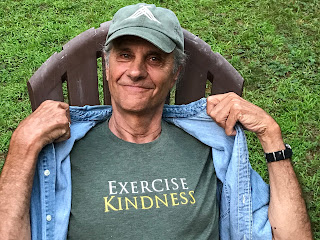The Laborious Bee Draws Honey from Every Flower
The following is a short excerpt from “William Penn’s Advice
to His Children.” Published by Friends Council on Education, Philadelphia, 1944
(first published in 1726). Pages 34-35.
“In conversation, mark well what others say or do, and hide your own mind, at least till last, and then open it as sparingly as the matter will let you. A just observance and reflection upon men and things give wisdom; those are the great books of learning seldom read. The laborious bee draws honey from every flower. Be always on your watch, but chiefly in company; then be sure to have you wits about you, and your armor on; speak last and little, but to the point; interrupt none; anticipate none. … It gives time to understand and ripens an answer. Affect no words, but matter, and chiefly to be pertinent and plain. Truest eloquence is plainest, and brief speaking (I mean brevity and clearness to make yourselves easily understood by everybody, and in as few words as the matter will admit of) is the best."
My reflection…
I remember learning in college that some students process information by talking it out. It was quite the “ah ha” moment as that very accurately describes me. And today, as a cold has taken my voice, I have been forced to choose my words carefully, speaking when only necessary and with as little words as possible. And this practice makes me remember learning about Quakers using words sparingly as a way of being as truthful as possible. I was kind of baffled by how this could be done. Especially considering Quakers were known for being activists. I found myself wondering how could they persuade people to support their positions without engaging in long debates? It was sometime later (while still in upper school) that I came to understand the power of listening, observing, and then crafting just the right words to make the group pause and reflect on what was said.
I was asked to serve on our “School Life Committee,” which comprised of a teacher from each unit, a board member, a parent and two upper school students. The first couple of meetings were exciting; all the “adults” were very interested in hearing about our student perspective, and accordingly we dominated the conversation. This tapered off somewhat at later meetings. But over the course of some months I began to recognize that one of the meeting members, who was a Quaker and the most quiet, always spoke with such clarity. His comments demonstrated how he was thoughtfully engaging with the information being shared, culling the sense of the meeting but also adding his wisdom. And even at the age of 16, I understood the power this had and it gave me cause to rethink how I engaged in meetings and conversations. I learned that my many words did not hold nearly the power of his few because I had not spent the time, the labor, of listening. And with very conscious effort I remind myself to be the listener first, and the contributor last. This is an important skill for me as a spouse, as a parent, as an activist, and especially as an educator.


Comments
Post a Comment